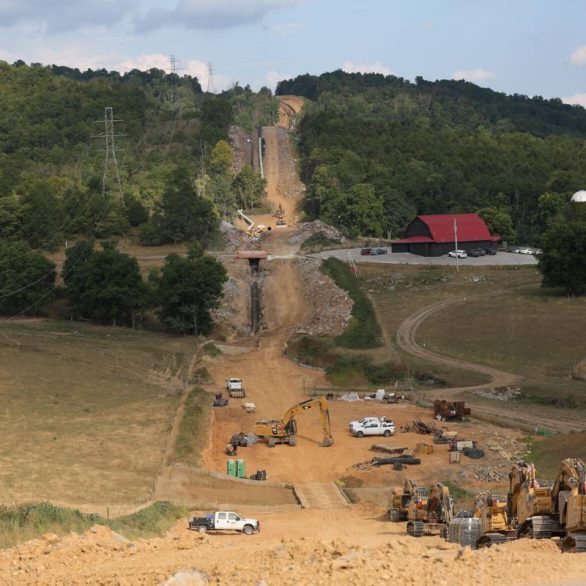As work on the Mountain Valley Pipeline winds down for another winter season, all but about 20 miles of the 303-mile-long natural gas conduit is finished, according to the lead partner of the project.
“It’s in the red zone for completion” by next summer, Thomas Karam, CEO of Equitrans Midstream Corp., said in a conference call Tuesday to discuss the company’s third quarter results with financial analysts.
In perhaps the most bitterly fought environmental battle in Southwest Virginia’s recent history, Mountain Valley has faced multiple court fights that delayed its completion by more than three years and nearly doubled its cost to $6.2 billion.
But as it nears the end of its fourth year of construction, all that remains is about 20 miles of stream and wetland crossings and a passage through the Jefferson National Forest, Diana Charletta, president of chief operating officer of Equitrans, said during the call.
Mountain Valley still lacks state and federal permits to cross water bodies for the final phase of construction — and opponents show no signs of giving up.
Of 2,292 comments made to the Department of Environmental Quality, 90% opposed granting a state permit for the remaining stream crossings in Virginia, according to Wild Virginia, one of many environmental groups opposed to the project.
Mountain Valley has identified 144 crossings that involve temporarily damming a stream and digging a trench along the bottom for the buried pipe. Another 92 crossings will be done by boring under the water body, which is covered by a separate permitting process that does not require state approval.
DEQ held two public hearings in September and accepted written comments through Oct. 27. A decision by the State Water Control Board is expected in December.
Wild Virginia obtained the public comments — which include most but not all of the written statements — from DEQ through an open-records request, it said in a news release last week.
The group said it decided to make a summary public after learning that DEQ did not plan on releasing its own tally to the water board or the public, as it has done in the past.
A response from DEQ was not available Tuesday, a state holiday.
“We do not presume that Board members will agree with our opinions or those of any other party” Jacqueline Goodrum, conservation policy associate for the group, said in a statement.

